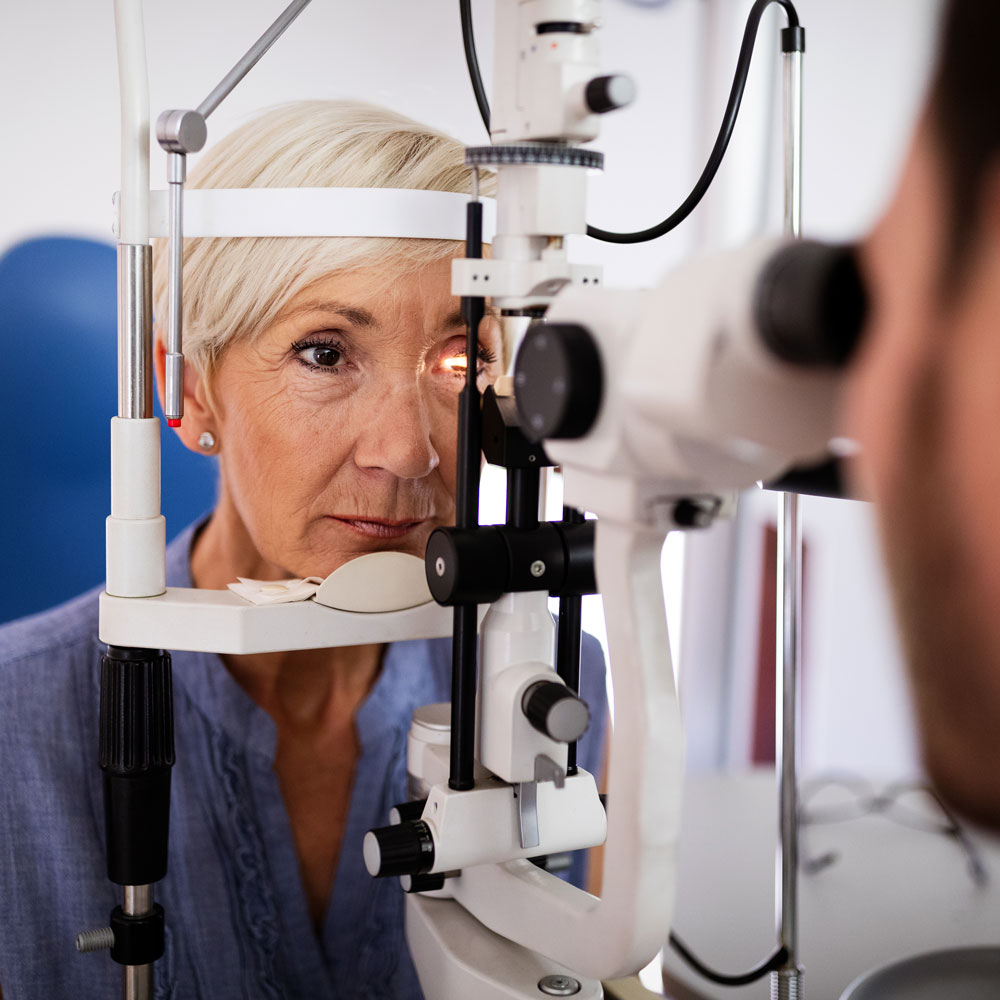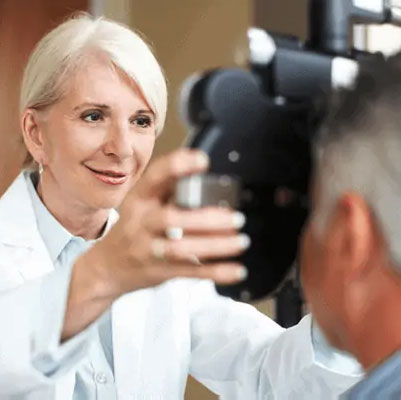
Fear You're Losing Your Independence?
We Can Help You Keep It
If you've been diagnosed with an eye disease, such as cataracts, glaucoma, macular degeneration, or diabetic retinopathy, you may feel overwhelmed and confused about the next steps to take.
Our low vision team will supply you with the most up-to-date information, and prescribe you with optimal low vision aids and devices so you can live your best life.

What Does "Low Vision" Mean?
Low vision refers to vision loss that can’t be corrected with standard glasses, contact lenses or surgery. However, it isn't considered blindness as limited eyesight remains. Symptoms typically include blind spots, poor night vision and blurred vision. Low vision is commonly caused by age-related macular degeneration, glaucoma and diabetes.
Fortunately, people with low vision can continue living full and meaningful lives with the help of low vision aids and devices.
A Low Vision Aid for Every Activity, Purpose, and Person
If low vision affects your ability to work or study, by making it more difficult to read the newspaper, work at your computer, watch TV, craft, or cook, EyeCare Specialties of Colorado - Pioneer Hills can help. Our experienced low vision optometrist will fit you with the appropriate aids or devices that complement your visual needs and lifestyle.
With our help, you may be able to drive again and resume many of the activities you love.

Examples of Low Vision Aids and Devices
Want to get back behind the wheel?
Consider bioptic telescopic, tinted, or side vision awareness glasses.
Miss playing cards with the gang?
Microscope or telemicroscope glasses can help make it happen.
Struggle to navigate a grocery store?
We offer several types of magnifiers that can take the stress out of your shopping experience.
We Can Help Maximize Your Remaining Vision

EyeCare Specialties of Colorado - Pioneer Hills in Aurora offers diagnostic screenings and treatments for macular degeneration and other severe eye diseases.
Our low vision eye doctors will consult with you and offer solutions that will help you manage symptoms and preserve your vision.
Low Vision FAQs
Low vision aids and devices maximize whatever usable vision you have left and help you maintain or regain your independence. These include electronic aids, such as screen readers and video magnifiers. Optical aids include standing and hand-held magnifiers, strong magnifying reading glasses, and small telescopes, among others. To learn more, contact EyeCare Specialties of Colorado - Pioneer Hills today.
Low vision can be caused by a number of eye conditions and diseases, including age-related macular degeneration, glaucoma, diabetes, eye cancer, albinism, and genetic eye disorders. Eye injuries and traumatic brain injuries can also result in vision loss. If you or a loved one has low vision, contact our practice to learn how we can help you carry out your daily tasks more effectively.
The process begins with a comprehensive low vision eye exam by our low vision team. Once we’ve determined your degree and type of vision loss, we’ll ask you about your lifestyle and suggest the aids or devices that can help you most. Then, we’ll show you exactly how to use your new aids independently and answer any of your questions.
Your Low Vision Eye Doctors in Aurora

Meet our Eye Doctors

- Monday 8:00 am - 6:00 pm
- Tuesday 8:00 am - 6:00 pm
- Wednesday 8:00 am - 6:00 pm
- Thursday 8:00 am - 6:00 pm
- Friday 8:00 am - 6:00 pm
- Saturday 8:00 am - 5:00 pm
- Sunday Closed
- Nov. 27 Closed
- Nov. 28 Closed
- Medicare
- Aetna
- Spectera
- Anthem Blue Cross Blue Shield
- Blue Cross

